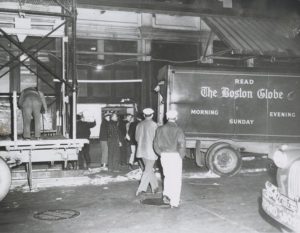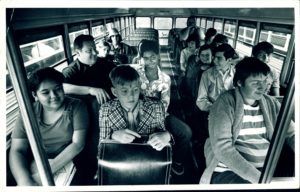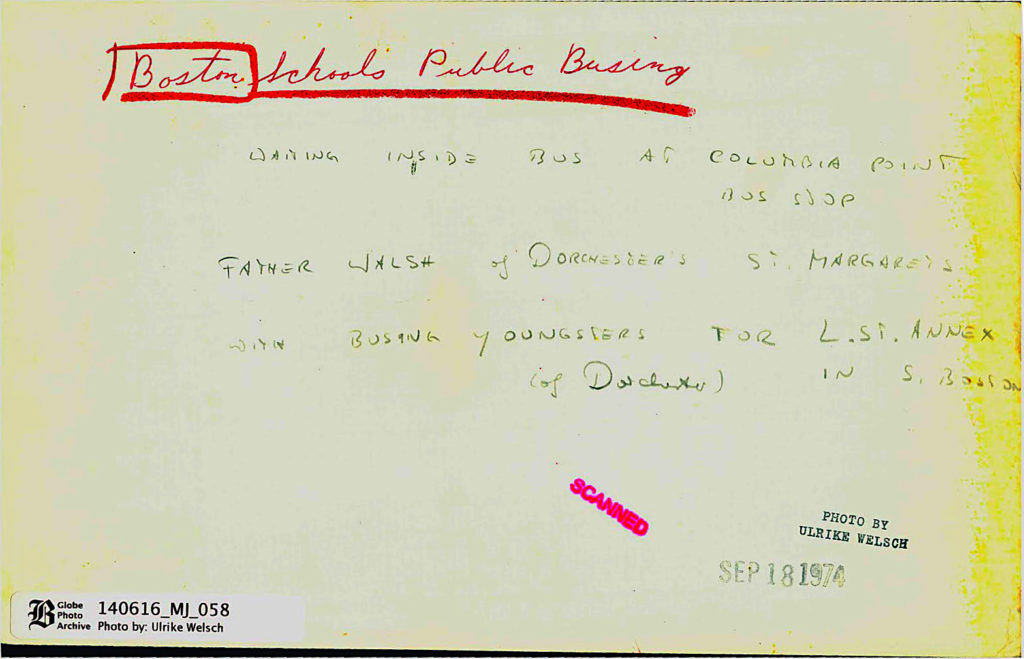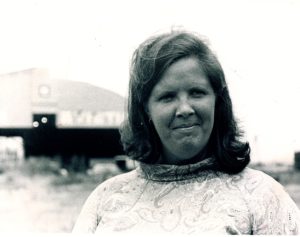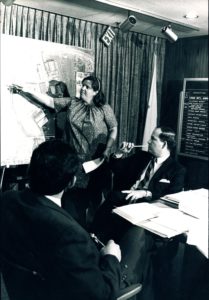Boston Research Center Receives $650,000 from The Andrew W. Mellon Foundation
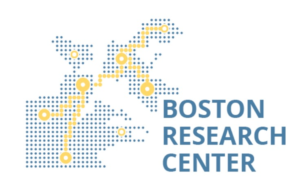 The Library is pleased to announce that it has received a $650,000 grant from The Andrew W. Mellon Foundation to implement the next phase of the Boston Research Center (BRC). The Boston Research Center is based in the Northeastern University Library and is dedicated to the study of Boston, enabling researchers from around the world to shed light on the city’s past, present, and future. The BRC serves as a place for students and scholars, Boston residents, and anyone interested in the history and culture of Boston to work together to combine special collections and contemporary data in an effort to better understand the past and envision the future.
The Library is pleased to announce that it has received a $650,000 grant from The Andrew W. Mellon Foundation to implement the next phase of the Boston Research Center (BRC). The Boston Research Center is based in the Northeastern University Library and is dedicated to the study of Boston, enabling researchers from around the world to shed light on the city’s past, present, and future. The BRC serves as a place for students and scholars, Boston residents, and anyone interested in the history and culture of Boston to work together to combine special collections and contemporary data in an effort to better understand the past and envision the future.
This next phase of the BRC’s growth will, through partnerships with Boston community organizations, focus on the development of new digital collections and technological systems to empower these organizations to tell the story of their work and their neighborhoods. This builds on the strengths of the Northeastern University Archives and Special Collections, a frequent partner with organizations in Boston and a trusted steward of local community archives, and will allow the BRC to serve as a digital community history lab where the creation of new collections and technology is driven by the needs of the people whose histories are represented in those collections. It also serves as a further iteration of the Library’s work to build inclusive information systems for cultural heritage.
The BRC is also now entering into a new partnership with the Boston Public Library. The Boston Public Library will play a key role in community outreach and technology development by drawing upon its extensive history of technological innovation and active partnerships with neighborhood communities served by its library branches. David Leonard, President of the Boston Public Library, said, “We are thrilled to take our relationship with Northeastern to a whole new level and collaborate on preserving and extending the reach of local neighborhood history and culture across Boston.”
“We deeply appreciate The Mellon Foundation’s generous support for this critical next phase of the Boston Research Center and how it forges strong connections with communities around Boston and with the Boston Public Library,” said Dan Cohen, the Dean of the Library at Northeastern. “And we look forward to helping to reveal new insights about our city through the BRC’s network of individuals and institutions.”
